The War On Female Liberation In Music
April 5, 2021
The 63rd Annual Grammy Awards aired last month, and it was a very entertaining show that held a lot of great performances. But most notably, the show was a huge night for women in music. Some notable moments were Taylor Swift becoming the first woman to win the Album of the Year award three times and Beyonce becoming the most awarded vocalist in the ceremony’s 63-year history (with a combined total of 28 Grammys).

But one moment of the night that got everybody talking was Cardi B and Megan Thee Stallion’s performance of their five-time platinum single, “WAP.” The performance, which aired around 11 PM at night, drew immediate controversy for its sexual nature and choreography.
The National Center on Sexual Exploitation ripped the performance, calling it a “glamorization of stripping and prostitution,” and saying, “CBS should have never allowed this kind of explicit performance to happen at the Grammys.”
The song itself, which was released in August of last year, has also gained a massive amount of controversy for the same reason.
“We are seeing the destruction of American values and principles. It’s terrifying, I think parents should be terrified that this is the direction that society is heading towards” said conservative commentator Candace Owens about the song. “We are weakening America. It feels like we are looking at corrosion and the end of an Empire. America can not survive on these values and principles.”
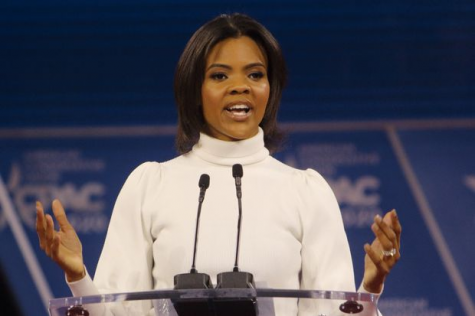
The incredibly volatile reactions to the song and performance really did not surprise me, as I’ve noticed this is a repeated pattern among a lot of songs that push boundaries in the same way.
Songs released in recent years such as “34+35” by Ariana Grande, Nicki Minaj’s “Anaconda,” and even some singles dropped by rap duo The City Girls last summer have gained a massive amount of controversy for their sexual lyrics and themes. But songs released by male artists, like Ty Dolla $ign’s “Or Nah?” and Kanye West’s “I Love It”, haven’t gained nearly as much controversy, despite containing similar sexual lyrics and being performed at high profile events.
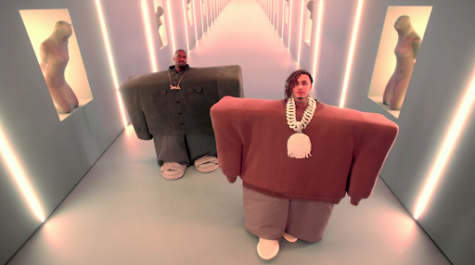
This underlines a huge problem and double standard in the way that we consume sexuality in music. I wanted to take a deeper look into this and try to figure out why society is so harsh on women in pop culture displaying sexuality through art.
The History Of This Double Standard
The demonization of women’s sexuality in pop culture has been a steady tradition for a very long time.
One of the first cases of a song receiving backlash for having sexual connotations was Loretta Lynn’s “The Pill” in 1975. The song addressed the recently legalized birth control pill in the United States and was banned by radio executives for being too sexual and progressive.
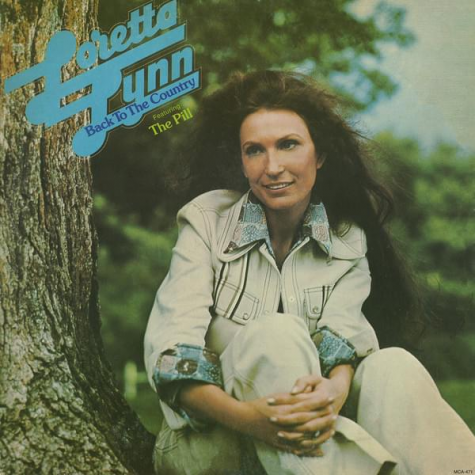
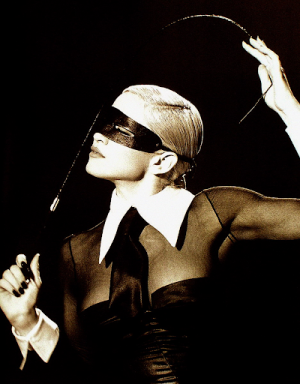
Another notable female artist who was heavily criticized for displaying sexuality was Madonna in the early 90s. Her 1992 album, Erotica, drew massive criticism and controversy for its sexual lyrics and music videos. Madonna was intensely slut-shamed in the media for this project, with columnist Kurt Loder calling it a “career-ending album.”
The treatment towards Janet Jackson after her 2004 Super Bowl halftime show is another prominent example of this double standard towards women. Following an accidental wardrobe malfunction on the singer’s top caused by fellow performer Justin Timberlake, Jackson was completely blacklisted from the entertainment business. Her music was removed from radio, her album sales hit record low numbers, and she was forced to resign from a prominent movie deal. While the media was completely tormenting Jackson, Timberlake’s career skyrocketed after the incident.
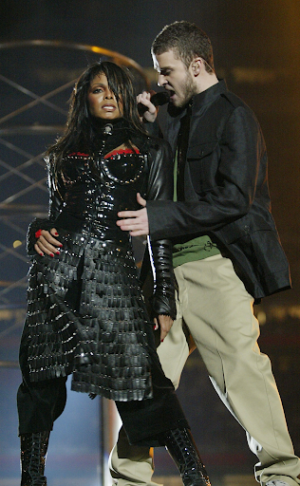
I think one of the saddest examples of this treatment towards women is the American media’s intense vilification of Britney Spears’ sexuality during the early 2000s. The gossip, public abuse, and death threats Spears received because of her developing sexual maturity eventually led the singer to tragically suffer from a public mental breakdown in 2008. This story was told in Framing Britney Spears, a documentary released on Hulu by The New York Times this year.
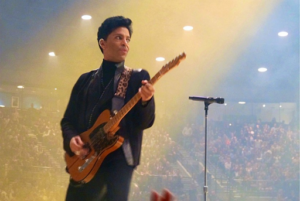
So while artists like Madonna, Janet Jackson, Megan Thee Stallion, and Britney Spears have been destroyed in the press for expressing their sexuality, male artists who experiment with sexuality in their music have escaped media scrutiny relatively unscathed.
Prince’s “Cream” and George Micheal’s “I Want Your Sex” didn’t garner nearly as much backlash as their female counterparts. More recent songs, such as David Banner’s “Play” and 50 Cent’s “Candy Shop” have not had any notable backlash either.
This double standard is undeniable in music and is an incredibly sad reflection on our society. Let’s also not forget how the media clutched their pearls at Rihanna’s “crotch grab” during her 2018 Grammy performance, while the same gesture has become one of Micheal Jackson’s most iconic signature moves.
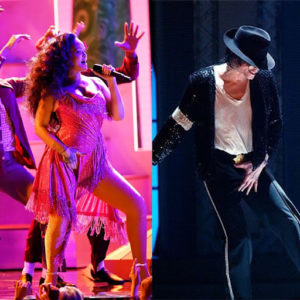
Right: Photo of Michael Jackson performing on stage at the Dangerous Tour (Photo by Mick Hutson/Redferns)
What This Means on a Larger Scale
These examples make it clear that western society hates women expressing their own sexuality, especially through art and music. American culture is fine with objectifying women, but it becomes a major problem when a woman becomes in charge of the narrative herself. Especially with heightened cases of sexual harassment and violence against women, this is an issue we need to become more mindful of when we are consuming certain aspects of music and pop culture. The heartbreaking stories of the Me Too Movement and the tragic death of Sarah Everad show that a woman’s sexuality has never truly been in her own hands. The west picks and chooses what they deem to be “acceptable” forms of female sexuality. We are quick to sexualize unconsenting women, but the second a woman proclaims her own sexuality it is demonized and made to be a taboo topic. I think a start for dismantling this construct in society is changing the ways in which we perceive art. I think that we have been taught to look at a song like “WAP” and immediately degrade its lyrics and meaning. Instead of vilifying art, we should try our best to appreciate it or just simply ignore it if the subject matter makes us uncomfortable.
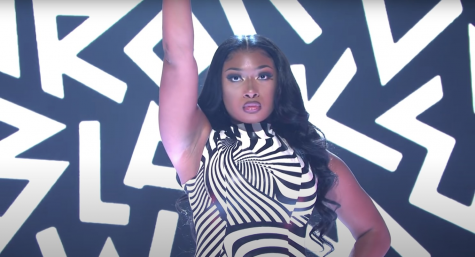
Impact On Children
A few weeks ago, a vocal coach by the name of Tara Simon posted a video to her Youtube channel, Tara Simon Studios, reacting to the WAP performance.
In a tearful state, Simon stated, “I’m so angry and grieved in my spirit and heart that this is what our young kids are looking up to. It grieves my heart that something like this is televised on a stage.” She added, “In the music industry, you can only seemingly be successful if you sell sex. If you sell sex, that is how you become popular. That’s how you’re enough. That’s how you’re loved. That’s how you as a woman can become successful making music.”
Following this monologue, she then called for the performance and song to be banned from television and streaming services altogether. With the video receiving thousands of likes, it is clear that this is a sentiment shared by many parents across the country.
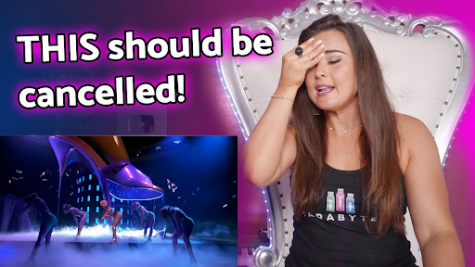
While I understand and sympathize with this reaction, I think attempting to censor this kind of art sends the complete wrong message to young girls.
It is important that we teach young kids and especially young women to grow into their sexuality as they reach adulthood. If society constantly demonizes sexuality when we see it on TV, it can have the effect of making girls feel ashamed of their bodies and sexuality. I think that when we see this sort of art become popular, we shouldn’t glamorize or condemn it to children. Rather we should show young girls that how they choose to express themselves as they grow into adulthood is entirely their choice. Trying to remove this type of expression from entertainment completely can be very damaging for society as a whole.
The narrative that a song like this teaches kids that they have to sell sex in order to be successful is bizarre and inaccurate. If we look at prominent female artists who have emerged to success in recent years, such as Olivia Rodrigo and H.E.R., we see that a large number of major artists have been able to be successful without having to sell sex to any compacity. I find it quite telling that seeing certain artists express their sexuality through music and performance prompts some people to make blanket statements for the entire music industry. These blanket statements can be incredibly damaging and misleading to music consumers.
While kids can certainly be influenced by what they see on TV, it’s essentially not up to celebrities and artists to babysit the nation’s children. Putting this pressure on artists shows that society has a bizarre codependency on pop culture to raise their kids. It’s the parent’s responsibility to instill values into their children. If parents have such a deep issue with their kids watching things like this on television, maybe they shouldn’t let their children watch it in the first place. It does not make sense to blame the art itself for the values being taught to kids when parents have control over what they allow their kids to watch.
In Closing
You don’t have to like every song, and it’s perfectly fine to choose to not listen to a song because of its sexual lyrics or messages. But when we see people like previously mentioned Candace Owens calling women owning their sexuality an “end of an Empire,” we have to realize that there is a much deeper problem in the way that America perceives sexuality through music. I find it interesting that the advocation for freedom of the market and press is widely supported, but when the music market becomes too “sexual” or “vulgar” it’s suddenly a major problem. The war on “WAP” does not have to be so prominent, and the media’s reaction to it proves that we have a lot of work to do in terms of normalizing female sexuality in art.
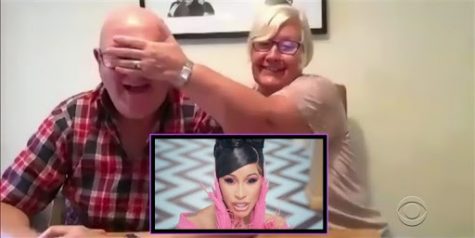
If an artist raps or sings about sex or includes sexual themes in their art, it does not make their art any less valid. We need to stop stereotyping women in this way and realize that music is entirely subjective. This double standard should not be as relevant as it is, and I hope one day all artists will be free to express themselves in their art without having to deal with the intense public backlash and scrutiny that today’s artists are receiving.

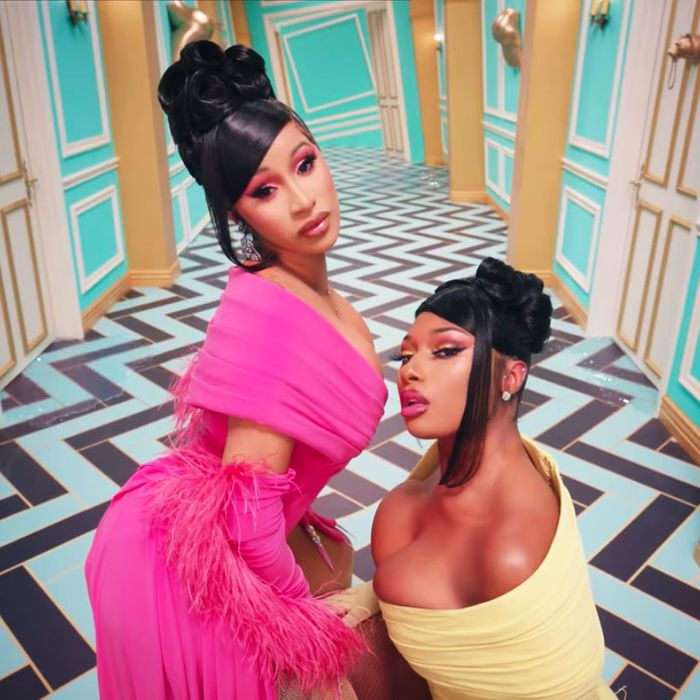
Sofia Athanasopoulos • Oct 18, 2021 at 1:14 pm
This is a major criticism that we need to point out in society and I’m glad that of all a man has chosen to speak up on it on behalf of women. Luke, your points and evidence are compelling and while they may not meet the likes of closed-minded individuals, your argument is fully backed up and chock full of facts and truths.
Diana Williamson • Apr 12, 2021 at 9:37 am
Luke, this article is very well written and has such great evidence to back up the points you make. I thought it was incredible how you not only brought awareness to the double standard in the music industry, but also how you delved into the history of it. I think one of the most significant points you bring up is how demonized Britney Spears was when she was experimenting her own sexuality and developing her own self identity, something that everyone goes through at some point. But since she was a public figure and that to be a “role model” for others, she was immediately criticized and ridiculed which was a part of her decline in mental health. I also appreciate that you acknowledge that others do not have to like all types of music, but they do need to realize that music is self expression that should not be hidden away.
Oliver Kane • Apr 9, 2021 at 8:43 pm
Great writing Luke!!! You and I have had similar discussions to this. I agree for the most part with the root of this article. Female music expressing sexual acts shouldn’t be taken as such a heinous crime. However, where you and I don’t meet eye to eye is that I believe that music that expresses sexual acts for both genders is down right dumb. Certain songs like “Watermelon Sugar” by Harry Styles or “Remember the Mountain Bed” by Billy Bragg, Wilco and Woody Guthrie express acts of sex in a unique and artistic way. When I first heard “WAP” I was disgusted. I think its a bad quality song that doesn’t have any deeper meaning besides sex. Yeah the song is good fun and people can enjoy it but I don’t think it should be taken seriously, to the point of playing it at a music award show. I view that as downright stupid and just appealing to the popularity of a song that became controversial. Looking at the history of the Grammy’s in general, it’s always been a rigged award show. Pink Floyd, Led Zeppelin and many more bands that were beyond worthy of an award never got one, because their music wasn’t mainstream enough or was controversial among the general public. I view “WAP” as nothing more than a stupid song written by someone with very little talent, unlike Taylor Swift, Harry Styles, Phoebe Bridgers and many more artists. Most songs about sex are, in most cases and in my opinion, stupid poorly written “songs” which soul purpose is to not make the listener feel something but to lower the standards of every single person who listens to it. This may be a controversial take among many people but most of the people at Pentucket know my political stance and know what I have done to fight for true equality and freedom. Many also know that I have always had a deep passion for music and have been playing music since I was six years old. It is my deepest passion and I have spent many years studying multiple aspects of it, including rap which, surprisingly I enjoy, just not the kind that makes my eyes roll in disgust.
Clara Endyke • Apr 9, 2021 at 3:37 pm
Luke this is such a great article! There is definitely more controversy and stigma around women expressing their sexuality in music than in men’s music. I think it’s great that you are bringing light to this issue and you chose such good examples. It is important that this gets talked about because it has been so normalized for men to create sexual music, and allowing women to do the same will create a less patriarchal society.
Nora Landry • Apr 9, 2021 at 3:34 pm
Luke, this is so well written and thought out! The direct comparisons between the treatment of men and women in the music industry really demonstrates how female artists face major inequities in the public arena. I was especially drawn to the example you used of how Janet Jackson’s wardrobe malfunction during her halftime show completely destroyed her career, even though this was out of her control and shouldn’t have forced her to step away from the powerful life she had built. I also like how you talked about how banning these types of freedoms for women in the music industry would affect younger generations. Most people look up to celebrities as role models, and if women are held back by their actions or words when men are not, younger children will think that that is the way society is supposed to work. There are serious flaws in the nature of society, but equality between men and women in the music industry is an important concept, and this article powerfully dives into an argument that isn’t talked about enough!
Henry Brien • Apr 9, 2021 at 2:22 pm
Luke the points you bring up about the double standards in rap (and most of the music industry) are excellent and they show how women in all aspects of life are unfairly treated and judged on biased standards. As someone who has listened to both Kayne and Cardi B, I would agree that some Kayne lines are more sexual and degrading towards women than the lines in Cardi Bs songs. Cardi B tries to help women develop a sense of self and help them appreciate themselves and love who they are. Kayne on the other hand degrades women and talks of them as if they are nothing more than objects. Your points clearly demonstrate how biased the music industry is and how some artists receive too much backlash for unfair reasons, whereas some artists receive none when they should receive tenfold what the other artists receive.
Ella Edic • Apr 9, 2021 at 1:40 pm
This is so well written Luke! I completely agree. I have truly never realized the severity of this situation, and discussing the double standard of the music industry along with other art forms has certainly made me aware of the flaws in our views on the expression of women’s sexuality throughout pop culture. Through your writing abilities and clear research you put into this article, I can tell you feel strongly of this topic. Thank you for advocating for the sexuality of women and being someone who openly challenges societal standards. King!
bella panteledes • Apr 9, 2021 at 12:13 pm
THIS IS AMAZING LUKE!! thank you for bringing attention to this incredibly harmful double standard that is a very real issue in our society. it needs to be talked about more and how you’ve worded this is incredible. the examples you’ve chosen are impossible to disprove. it’s incredibly important to show women, especially young impressionable women, that being feminine and sexual is entirely okay and not something to demonize. amazing writing !!
Zoe Wegrzyn • Apr 9, 2021 at 11:17 am
Luke!! You worded my exact thoughts. Cancel culture among women in the music industry has become to big of a worry for people looking to invalidate young girls confidence stemming from inspirations like Megan the Stallion and Rihanna. It is important to acknowledge women enjoying their sexuality without receiving sexualization from men. The music industry has become to focused on her vs. him, when it should mainly be about creating successful artists. This is one of my favorite articles from you so far!
Jessica Romano • Apr 9, 2021 at 9:55 am
This is a much needed article. I completely agree with the points that were made, and I think older generations should read this. Luke, the structure and writing abilities that were displayed in this article show how great of a writer you are.
Audrey Hackett • Apr 9, 2021 at 8:50 am
this is such a great article. i really appreciate you pointing out the double standard put on women in music, since people seem to not even bat an eye at songs by male artists with the same lyrical content. this could not have been worded better and better points could not have been made. amazing work luke
Charley Aldrich • Apr 9, 2021 at 1:08 am
LUKE THIS IS SO GOOD!! Everything is so accurate, the double standards between women and men are ridiculous, especially in the music industry. I love seeing women, female rappers especially, owning their sexuality, rather than seeing men sexualize women. Candace Owens is an ignorant hypocrite, it is so ironic that she acts like she is some “free market” advocate who then calls for the censoring of anything that she does not like. I think so many people misinterpret female sexual liberation as women solely sexualizing themselves when in fact, it is really just women owning and flaunting their sexuality after having it be so stigmatized and exploited by men. I think society needs to stop with all of this stigma and acknowledge that women can be sexual and worthy of respect and intelligent at the same time.
Harleigh Walsh • Apr 8, 2021 at 3:44 pm
I completely agree with your statements! The war on female liberation is very prominent especially in the sexual nature of current songs. Society acts as if this hasn’t been going on for decades within many other groups, most prominently male groups, using sexual desire to their advantage. For some artists it is their whole brand but the moment a woman does it, it’s deemed inappropriate? I especially appreciated your other examples of this happening in pop culture before. I like the way you executed your points and thought it was very well thought out, nice job Luke!
Maddie T • Apr 8, 2021 at 1:46 pm
i love this article luke! you were so articulate, especially when pointing out the hypocrisy that people like Candace Owens present to female sexuality. Stream “Kiss Me More” by Doja Cat and SZA. collab of the century!!!!!!!
Olivia Nardone • Apr 8, 2021 at 1:20 pm
Luke, you bring up valuable points which I haven’t thought about. It is interesting how this harmful double standard in the music business dates as far back as the ’70s. The number of examples of men expressing their sexuality through music and not only getting off scot-free but being applauded is crazy to me. I believe this double standard is essentially rooted in slut-shaming. While women expressing themselves has unfortunately always been controversial, WAP backlash has highlighted how the media is almost hyper-focused on shaming women; a topic you have really brought to life in your article. You write with passion, yet present facts in an impressive way. Overall your article has definitely educated me in further detail about the extensive vilification of women when expressing their sexuality.
Ali Drummond • Apr 8, 2021 at 9:51 am
Luke you’re an amazing writer!!! This is such a good article